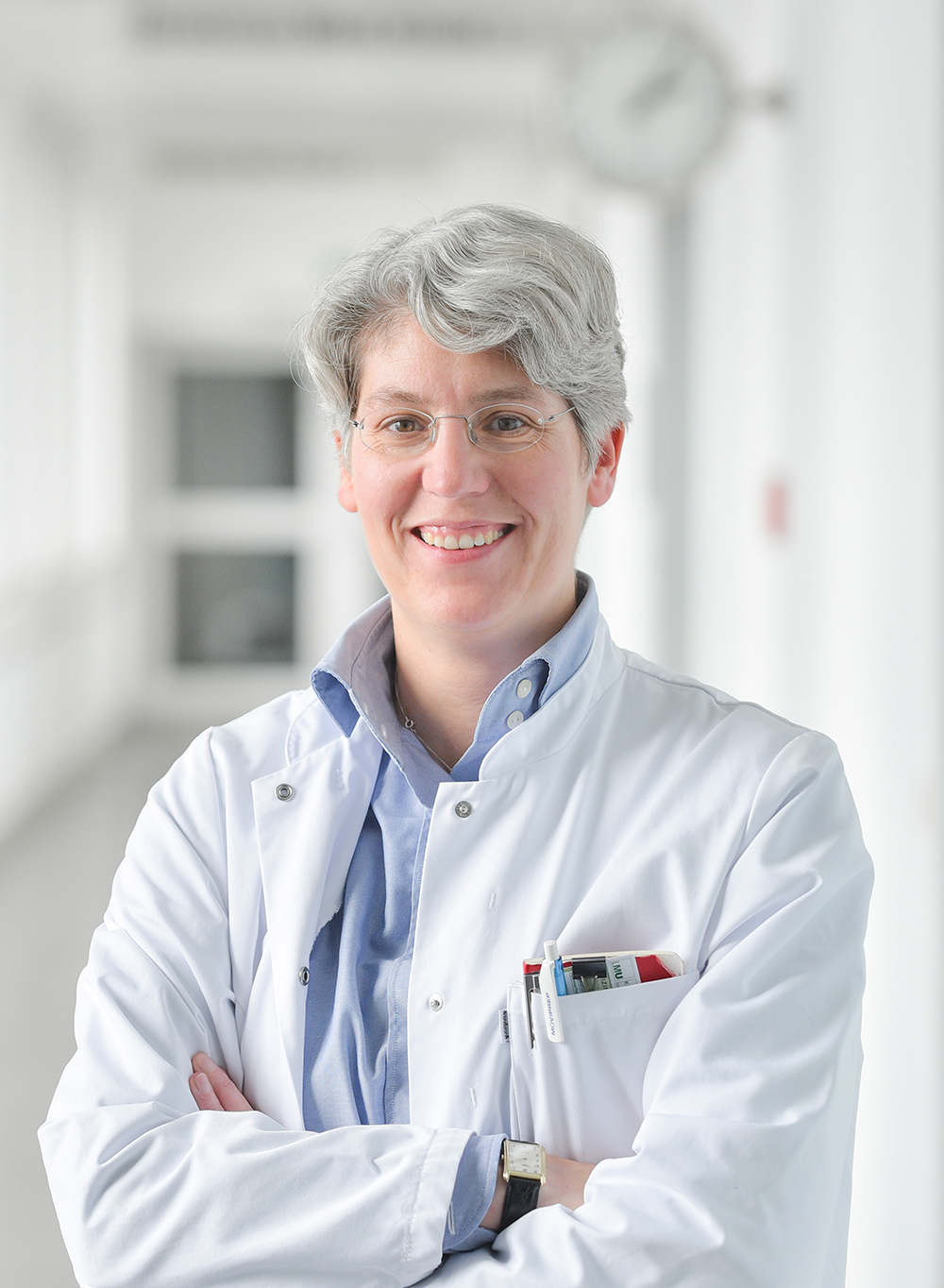Forscherdatenbank

Prof. Dr. med. Julia Mayerle
LMU Klinikum
Marchioninistr. 15
81377 Munich
Programme
Exploitation of Oncogenic Mechanisms (EOM)
Molecular Diagnostics, Early Detection, and Biomarker Development (MDEB)
Übersicht
Mechanisms of pancreatic cancer carcinogenesis
We study epigenetic mechanisms of pancreatic cancer carcinogenesis (Benitz et al Gut 2019), stroma composition with regard to prognosis and treatment resistance (Mahajan et al Gastroenterology 2018, Mahajan et al JNCI Cancer spectrum 2020) as well as targeted drug delivery (Mahajan et al Gut 2016). In addition, embedded in the SFB 1321 we focus on sphingolipids as diagnostic and predictive markers as well as their role for metastasis formation in pancreatic cancer (Mayerle et al Gut 2016, SFB 1321, A14). Funded by the BMBF we have developed a plasma metabolome signature to exclude pancreatic cancer in high risk cohorts in whom imaging strategies fail and are currently validating the signature in a prospective cohort. Recruitment of 1375 patients has been closed in March 2020 and final results will become available in 2021. As a preclinical platform within the Predict-Paca Consortium funded by the German Cancer Aid (DKH) we have established an organoid platform including co-culturing models. I am one of the coordinators of the revision of the German S3 guideline on pancreatic cancer treatment and I am a member of the ESPAC trials steering committee.
DKTK Junior Group Leader for Cancer Systems Biology
Single-cell approaches have not only revealed a wide variety of cell states, characterized by cells exhibiting striking differences in their transcriptional profile, but have also illuminated the mechanisms underlying state transitions in health and disease. Cellular plasticity and adaptive state changes have recently emerged as a basis for therapeutic resistance in cancer, and a better understanding of how cell state transitions are regulated is critical to develop therapeutic approaches that can overcome therapy resistance.
Our research focuses on understanding the mechanisms driving non-genetic cellular heterogeneity and therapy resistance in malignancy. Using novel single-cell sequencing approaches, we seek to develop new experimental and computational strategies to define altered cell states in both, cancer and immune cells. Our aim is to leverage a data driven strategy combined with single cell genomics and systems biology to address the challenges posed by heterogeneity in cancer, and to develop new strategies to overcome it, with the aim of translating laboratory-based findings into the clinic.